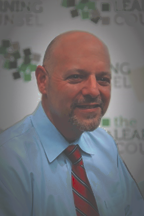There is a very strong theme running through every conversation I have had over the last several weeks. I don’t know whether someone has put something in the water supply, there is mass hypnosis afoot, or this is real. Since many of the folks I talk to are on private well water, and mass hypnosis on this level is unlikely, I choose to believe that this is sincere.
The theme is optimism. Strong optimism. Giddy optimism. Rose-colored glasses optimism. Pollyanna optimism. I can honestly say I have never seen so much optimism in the education biz. From teachers to principals to superintendents and state directors, everyone is excited about the start of the new school year.
It goes much deeper than being excited to return to in-person classrooms. The pandemic changed education. It changed us. Somewhere along the timeline of shuttered classes and determining hybrid solutions, collectively, we had an epiphany.
The way we do education is not chiseled in stone.
And there it is.
Throughout my lifetime, and even my parents’ lifetime, there was an understanding that education was supposed to look, feel, taste and smell a certain way. Our job was to educate. We imparted knowledge, a year at a time, through teachers. Once children learned the prescribed knowledge, they were edumacated (typo mine). This was the knowledge they needed to make their way in the world.
And the pandemic changed that. Obliterated it. Destroyed it. It allowed us to ask questions. To think. We were able to take an impossible situation and see the possibilities. And we did. Lots of possibilities. Wonderful possibilities. In one terrible wonderful year. Everything we thought we knew about education went away, and we were left with all the ideas we have been secretly harboring since we first joined the crazy world of education. It is as if the pandemic gave us permission to fix education in a way that just didn’t seem possible.
Last year, the Learning Counsel ran an article by Ryan Schaaf entitled, Overcoming a “That’s The Way We Have Always Done It” Mindset in Schools. According to Schaaf, “Today's public education systems were created over a century ago in a time before computers, before televisions, before airplanes, before cellphones, before radios, before the Internet, before satellites, before equality, before brain research, and entirely before electricity was available in anyone's home.
The system of school was modeled after the assembly line factories of a century ago, with teachers seen as the workers, learners as the products being produced, principals as the managers, and schools as the production line. Schools tried to make students one-size-fits-all regimented “learning machines” so that they would be equipped to play decisive roles on the assembly lines of the day; performing clearly defined routine cognitive tasks over and over again with accuracy and precision as rapidly as possible.
However, the world that today's learners face is entirely different from the world in which this current education model was created, and it continues to change even more each day.”
And therein lies the rub. No matter how well we did education, the best we could hope to accomplish was to perfect an outdated system. We are just too smart to be content with that outcome.
Schaaf has suggestions for education, post-COVID. He says:
Educators must be future-focused
As educators, we can teach the content outlined in our curricula and academic standards, while simultaneously helping learners develop the required skills of modern learners. Since these are uncertain times, educators can take the opportunity to practice project-based learning, flipped learning, maker learning, or another student-centered learning approach.
Educators must be lifelong learners
Educators must continuously learn, unlearn, and relearn to improve their instructional craft. New research findings and advancements in teaching methodologies are reported each day, but this further information vital to educators is lost in the sea of information overload. Educators can explore micro-courses, workshops, or certification training to brush up on their face-to-face, blended, and online teaching practices. Or, they can simply search for new ideas online or join a professional learning network.
Educators must be facilitators of learning, not sages on stages
Despite the longstanding tradition of doing just this, the job of educators is not to stand up in front of students and show them how smart they are. Instead, an educator’s job is to empower students to become independent thinkers and doers. Educators must shift the responsibility for learning from the teacher, where it has traditionally been, to their students, where it belongs.
Educators must be expert generalists, not specialists
In a world dealing with information overload, memorization is just not the same as understanding. Increasingly, what we see in the modern world is a move away from associating success based on rote memorization of content. As the amount of information increases exponentially, success in life depends less and less on rote learning and more and more on a person’s skill to process information and use it in a discerning and creative manner. Expert generalists have effective analytical processing and application skills. They study many different fields to understand more profound principles across domains in order to make connections.
Educators must embrace discovery learning
When educators depend too heavily on the “teaching as telling, learning as listening” instructional model, it can cheat learners out of that ‘aha’ moment where they connect prior knowledge to discover something new. Modern educators must constantly strive to be creators of engagement, not just ‘know-it-alls’ or ‘content dispensers.’
Educators must enhance instruction with real-world meaning
One of the essential uses of information is in solving real-world problems and creating something new or better. For learners to undertake these endeavors, they will need to depend on educators to craft problems for them to solve; or products for them to create. Educators must be crafters of real-world problems.
How can you not feel optimistic? For the first time in, perhaps forever, the future of education is ours to create. Obstacles no longer exist. We no longer say TTWWHADI (That’s the way we have always done it). Now we ask, what will it take to accomplish this? And that changes everything. From the make-up of the classroom to the way that schools choose and purchase technology. Everything is on the table now. Everything is possible.
About the author

Charles Sosnik is an education journalist and editor and serves as Editor in Chief at the Learning Counsel. An EP3 Education Fellow, he uses his deep roots in the education community to add context to the education narrative. Charles is a frequent writer and columnist for some of the most influential media in education, including the Learning Counsel, EdNews Daily, EdTech Digest and edCircuit. Unabashedly Southern, Charles likes to say he is an editor by trade and Southern by the Grace of God.










